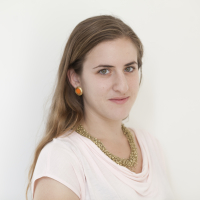Yesterday, the Rabbinical Council of America (RCA) came out with a statement that reaffirmed its 2010 position on Orthodox female ordination: not acceptable. And yet, the situation for female religious professionals has never been better. They find jobs quickly, they are well-liked, and they are, despite the RCA's opposition, de facto rabbinic actors. Why are they so successful? Because they are a part of a modern Orthodox community that needs them.The 2010 statement by the Orthodox (entirely male) establishment said this:
In light of the opportunity created by advanced women's learning, the Rabbinical Council of America encourages a diversity of halakhically and communally appropriate professional opportunities for learned, committed women, in the service of our collective mission to preserve and transmit our heritage. Due to our aforesaid commitment to sacred continuity, however, we cannot accept either the ordination of women or the recognition of women as members of the Orthodox rabbinate, regardless of the title.

A few things bear pointing out in this statement: first, there is no halakhic problem with ordaining women. It has never been a halakhic issue, and should not be made one now, a fact seen in through the minimal resistance some of the same issues have met with in Israel. From the Israeli Yoetzet Halakha program that trains women to be official halakhic advisers on particular women's issues to Kolech, an Orthodox women's NGO that invented the term "Rabba" (a feminized version of Rabbi) rejected out of hand by the RCA in 2010, to organizations like Beit Hillel, a national-religious rabbinic group with a women at its head, calling female religious professionals "Rabbaniot."
The second striking factor can only be described as the statement's lack of integrity. It's strangely myopic to say that "in the service of our collective mission to preserve and transmit our heritage" the RCA should bar Orthodox women from preserving and transmitting their heritage. I am certain that when the women of Maharat, outside of the context of the RCA, read the words "sacred continuity," they believe themselves to be part of it.
Finally, the line that the RCA "cannot accept either the ordination of women or the recognition of women as members of the Orthodox rabbinate, regardless of the title" dates back to 2010, when Rabbi Avi Weiss, the head of the program, was willing to compromise on the name. In light of RCA pressure at the time, he changed the then-proposed Kolech title "Rabba" to Maharat, a Hebrew acronym that stands for manhigah hilkhatit, ruhanit, toranit — "communal, spiritual, religious leader." At the time, the RCA didn't care, and apparently it still doesn't.
The line that the Orthodox world today is "just not used to the idea" is old and tired. Of the new cohort of women to be ordained this year—there are three—all have been placed in synagogues in a professional capacity. A glance at the invitation to the Maharat graduation ceremony or even the broader list of its students in the program, gives a sense of just how deeply these women are mainstreamed into Orthodox life. And while the RCA establishment cudgels them, communities embrace them.
Examples of women serving—de facto—in rabbinic capacities abound, and not just through the Maharat program. Gilah Kletenik (a personal friend), is Congregational Scholar at Kehilath Jeshurun, in the heart of the Upper East Side of Manhattan. Rachel Kohl Finefold, one of this year's Maharat graduates, served as the "Education & Ritual Director" and held the "Dr. Carol Fuchs Kaufman Rabbanit Chair" at Rabbi Asher Lopatin's former Anshe Sholom Bnei Israel Congregation in Chicago. And Elana Stein Hain has been serving at Lincoln Square Synagogue as "Community Scholar" for over five years, where she has been "sermonizing, counseling, building relationships, teaching and collaborating on programs…" Her position at Lincoln Square, no less, "was initially made possible through the support of Yeshiva University Center for the Jewish Future." If Yeshiva University isn't mainstream modern Orthodoxy, well then I'm not sure what is.
What all of this says is that these are women who are relevant. Who's services are needed. Who are essential parts of the community. The leadership landscape is changing in the modern Orthodox world, and it's the RCA and its cultural misogyny who are going to be left behind.





